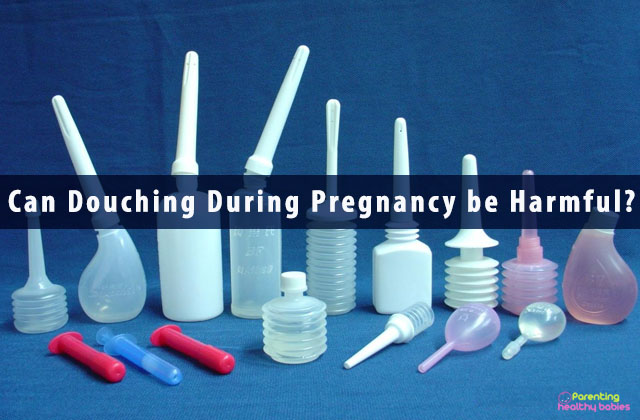Many women are alien to the concept of douching. “Douche” is not a word that well known, in many places, and perhaps rightly so. So, what is douching? Douching is washing or cleaning out the vagina with water or other mixtures of fluids. You’re probably thinking that it’s a great measure of health and personal hygiene; but the reality is a bit too far from it. Doctors recommend that you do not douche. Douching can lead to many health problems, including problems getting pregnant. Douching is also linked to vaginal infections and sexually transmitted infections (STIs).
Health problems linked to douching include:
- Bacterial vaginosis (BV), which is an infection in the vagina. Women who douche often (once a week) are five times more likely to develop BV than women who do not douche.
- Pelvic inflammatory disease, an infection in the reproductive organs that is often caused by an STI
- Problems during pregnancy, including preterm birth and ectopic pregnancy
- STIs, including HIV
- Vaginal irritation or dryness.
Douching can change the natural balance of vaginal bacteria that live in the vagina and disrupt the normal acidity in a healthy vagina.
A healthy vagina has both good and harmful bacteria. This balance of bacteria helps to maintain an acidic environment. The acidic environment protects the vagina from infections and irritation. Douching can disrupt this balance lead to problems such as yeast infections. In fact, douching when you already have a yeast infection can give the yeast a push up your vagina so they get inside your body, which could lead to infection in the ovaries or the fallopian tubes. This could result in pelvic inflammatory disease, which is a serious condition.
Douching, therefore, can seriously harm your vaginal health and lead to serious sexual and uterine complications. Besides, it is a common misconception that douching can prevent vaginal infections and STIs. The truth is quite on the contrary: douching can foster bad bacteria and result in more infections, and if you notice any odour or itching in your vagina, it is best to see a doctor straight away. Do not douche before seeing your doctor, since that can make it difficult for her to locate and diagnose the infection.
Douching is absolutely unnecessary. It is not a way to cleanse your vagina. Your body has its own natural protection for the vagina and it regularly cleans and flushes out unwanted material from the vagina by producing white mucus like substance. You don’t need additional measures to keep your vagina clean and healthy.
Vaginal Douching: Serious Effects on Pregnant Women
Douching can also have seriously detrimental effects on pregnant women.
Trouble getting pregnant
Douching as often as once a month may make it difficult for you to conceive. However, research suggests that douching after sex has no impact on the odds of getting pregnant. Douching has been associated with a higher incidence of ectopic pregnancy. This means that your likelihood of conceiving is reduced.
Many women who douche before a gynecologist session convey to their doctors that they undertook this activity for hygienic reasons. However, one of the many problems associated with douching is that it has a significant impact on both, the beneficial as well as the harmful bacteria in the vaginal area.
Studies suggest that women who douched at least once a month had a harder time getting pregnant than those women who did not douche.
Douching essentially disrupts the natural process of your vagina and related organs, thus making it difficult for the body to perform to its optimal levels. If you are disrupting the natural balance and functioning of your reproductive system, you are bound to face repercussions.
Could potentially affect fertility
As mentioned previously, douching disrupts the natural balance of bacteria in your vagina. Many women use different products while douching, from lotions to over the counter liquids- some might even use household products such as vinegar and baking soda. While douching might give you an overall feeling of cleanliness and hygiene, it affects the natural pH balance of your vagina.
This can promote the formation of various fungal and bacterial infections in your vagina, since you are wiping out the good bacteria present there as well. Furthermore, douching involves the insertion of a long nozzle into your vagina to clean it. This will push the bacteria present inside your vagina further into your body. They could potentially reach your fallopian tubes or ovaries and lead to infections and complications. This will definitely affect your ability to conceive, as well as affect your current pregnancy, if you are going through one. May result in ectopic pregnancy
An ectopic pregnancy happens when a fertilized egg attaches itself in a place other than inside the uterus. Almost all ectopic pregnancies occur in the fallopian tube and are thus sometimes called tubal pregnancies. The fallopian tubes are not designed to hold a growing embryo; thus, the fertilized egg in a tubal pregnancy cannot develop properly and must be treated.
One of the reasons why an ectopic pregnancy could occur is an infection or inflammation of the fallopian tubes. Douching can and does cause various infections, both in the ovaries and the fallopian tubes. Therefore, douching could potentially lead to an ectopic pregnancy. Douching regularly can lead to internal infections. One or more douching-induced infection might result in permanent damage of the fallopian tubes, and therefore result in an ectopic pregnancy. Ectopic pregnancies occur in 1 out of 5- women. An ectopic pregnancy can also affect your chances of getting pregnant in the future.
Higher occurrence of premature childbirth
Douching increases your risk of delivering your baby earlier than the due date. A study of over 500 women found out that women who douched at least once a month were more likely to deliver their babies early. A premature childbirth affects not only the baby, but the mother as well. Premature delivery can be potentially life threatening complications for both, the mother and the baby. Premature babies are also more prone to infections, deformity and life-threatening illnesses.
Bacterial vaginosis and related infections
Some women experience no symptoms with bacterial vaginosis, but others have a thin, grayish-white vaginal discharge and a fishy odor.
The risk of endometritis: an infection in the uterus, is heightened if you have recurring bacterial vaginosis. It can happen during or after labor, which highly increases risk of complications for both mother and child.
Intra-amniotic infection: an infection of the amniotic fluid, the placenta or the membranes surrounding the embryo can be a resultant of bacterial vaginosis; this can result in premature rupture of the membranes during a premature birth. Because douching raises the risk of vaginosis, and that can lead to other infections, it should be avoided during pregnancy.
The takeaway- Douching is really quite unnecessary and additionally, risky as well. It can lead to various infections of the vagina and related organs. Douching during pregnancy can cause complications resulting in potentially lethal situations for both, mother and child. It should therefore be avoided.
https://www.livestrong.com/article/551022-is-douching-while-pregnant-harmful/
https://www.womenshealth.gov/a-z-topics/douching













